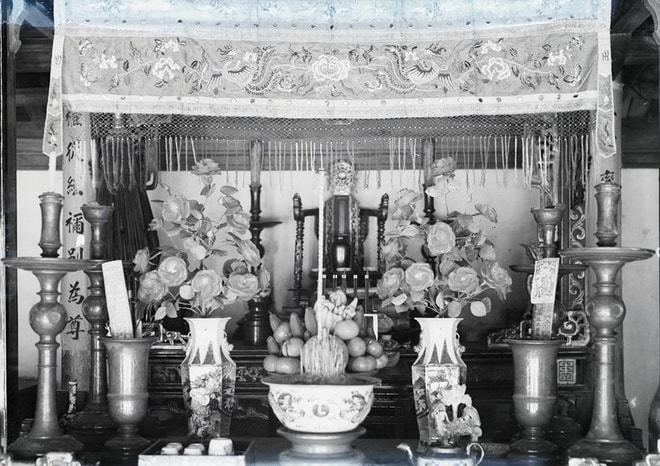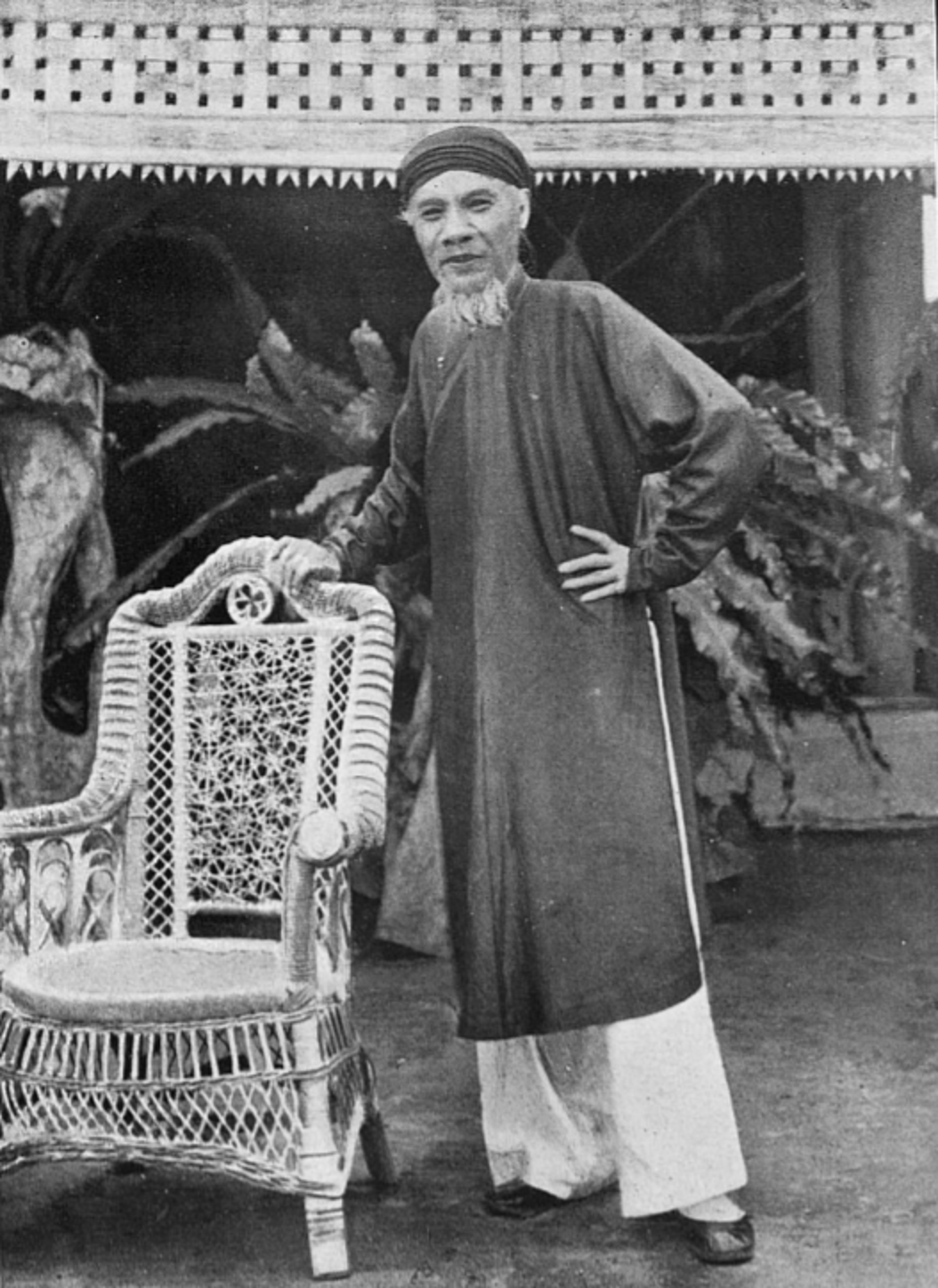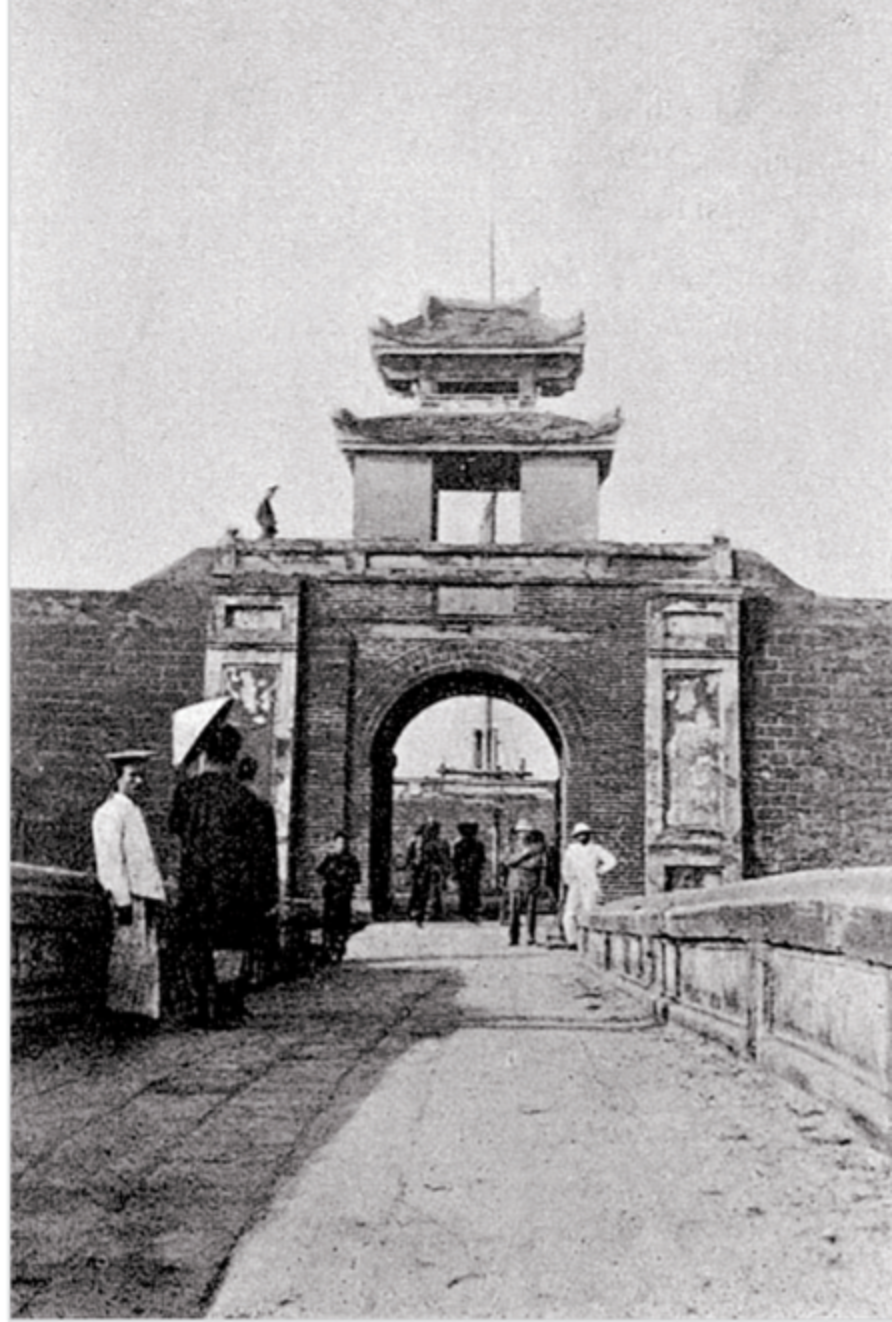The story of Nghe An Governor Dao Tan inviting Western guests to watch opera in Vinh
(Baonghean.vn) - Marquis Pierre François Sauvaire De Barthélemy (1870 - 1940) was an adventurous French aristocrat writer who traveled around the world. During his trip to Indochina in 1896, Barthélemy and his friends from Ha Long stopped by Hai Phong, Nam Dinh and arrived at Ben Thuy (Vinh - Nghe An) by sea. After celebrating Tet in Vinh, he continued up the Ca River to Tuong Duong, Ky Son and to Laos...
In his travelogue about this trip, Barthélemy described: “Tet is a typical festival for both religious and non-religious people. The sound of firecrackers and the joyful cheers of the people woke us up right at the beginning of a new day, a big day. On the contrary, in the afternoon, a quiet atmosphere covered Vinh, because of the custom here, every family had to prepare a tray of food to offer to the ancestral altar. Family members gathered together, men and women knelt before the family altar, to send their respect to the deceased. People burned paper money, gold and silver and incense, no one left the house on the first day of Tet. On the second day of Tet, people visited and wished their relatives a happy new year.”
 |
| Photo of a Vietnamese family's fruit tray on Tet holiday in 1929. Archive photo |
In particular, he said that “saving is very strange to Vietnamese people”, which is clearly shown during Tet. “During Tet, everyone spends more and is more generous. That is why the stores are always packed. During Tet, parties sometimes last longer, exceeding the limits and financial capacity”. He said that he has been to many casinos during Tet and noticed that Vietnamese people are addicted to gambling. It is also a lucrative source of income for Chinese casino owners. He even called them “financial worms in this country of crazy heads”.
Barthélemy described the long lines of mandarins and soldiers coming to wish the Governor of Nghe An a Happy New Year, although he was not surprised, because he knew the same situation, even worse, at the Hue court.
However, the most impressive thing for the French aristocrat writer was the plays written and staged by Dao Tan - Governor of Nghe An, who was also a Tuong artist. As is known, when he was Governor of Nghe An, Dao Tan established a Tuong theater called "Nhu Thi Quan" and also opened a Tuong training class called "Hoc Bo Dinh". He had a theater troupe and also a team of about 20 soldiers, who followed him to perform Tuong plays, even after he retired. "The Governor told us that his theater troupe had never left him, he had taken the theater troupe with him to many places".
On the evening of the third day of Tet, an escort, with grand ceremonies, took the writer's guests to the Governor's Palace. "About 30 people wearing red shirts and white trousers were waiting for us. Some held torches in their hands, some held two-tiered parasols, and some had swords on their shoulders to show the authority of the mandarins.
Finally, a man passed in front of us, holding a wooden drum and beating it rhythmically, signaling our arrival for everyone to stand aside.
The escort only took us to the Governor's gate and then returned. There, we waited for the city officials and bystanders to take us to the Governor.
 |
| Governor of Nghe An and Tuong artist Dao Tan. (Photo in the book L'empire d'Annam, 1904) |
A well-dressed man led us to where he was standing and there we watched the fireworks. The Annamese are well versed in guns and are usually good pyrotechnicians. But alas, it was drizzling and the high humidity prevented many of the beautiful displays.
But what interested us was the plays. The Consul arranged for us two proficient interpreters, thanks to which we understood the meaning of the plays.
The performance began just after 9 p.m. “The stage was a mat, with a partition separating the backstage from the audience. Sweets and champagne were laid out on a table, which was reserved for the Governor’s guests.”
That evening the guests saw two plays.
The first play tells the story of a poor young man who was good at studying and filial. Dissatisfied with the unfairness of the examination system, and his mother being seriously ill, the young man disguised himself as a tiger to go into the forest to find tiger milk to cure his mother. Unfortunately, the young man disguised as a tiger and met a hunting party of a court official. When the soldiers drew their bows to shoot him, he had to take off his tiger skin. Impressed by the young man's filial piety, the official persuaded him to take the exam so that he could become an official and help the people. The young man listened and promised to take the exam when his mother recovered. In that exam, candidates had to take both literature and martial arts exams. Ironically, in the end, the judges had to choose the winner between him and the mandarin's son. The play ended with the question of who would win first. A very modern, open ending by Dao Tan.
The second play tells the story of a young girl, the younger sister of a bandit leader, who takes revenge when her brother is killed by a mandarin. While the girl and the mandarin fight, her maid also argues with the mandarin's soldier. At night, when the mandarin and the girl pause their fight, the soldier comes to flirt with the maid. When she is rejected, the soldier draws his bow and arrow and shoots the maid. The maid promises to satisfy him, on the condition that he lies down, bites the arrow in his mouth, and pulls it out. The soldier obeys and is stabbed to death by the maid while he is doing as she says.
 |
| Nghe An Citadel Gate (Photo from the book “En Indo-Chine, 1896-1897, Tonquin, Haut Laos, Annam septentrional”, Paris, 1901) |
Because it was so late at night, the second play had to stop at this scene.
“The evening ended wonderfully!”. Western guests not only felt the content and humanistic meaning of the plays, but they were also very impressed with the colorful costumes and the conventional stage style of An Nam plays, when the stage was just a mat, two crossed flags were the target of an archery competition, or a whip, or a rope could also represent the actions of riding and galloping horses… They were also surprised that, contrary to the happy endings of Eastern literature, Dao Tan’s plays had open endings, very modern. In particular, although he could not fully understand the translation, the French writer was also very pleased with the humorous performances, especially the verbal exchanges and responses with the art of wordplay that was extremely delicate and unique.
